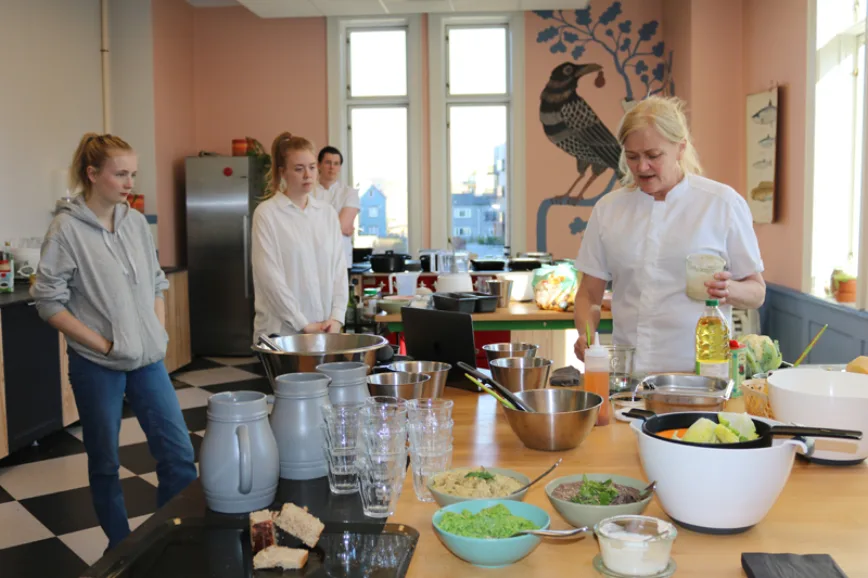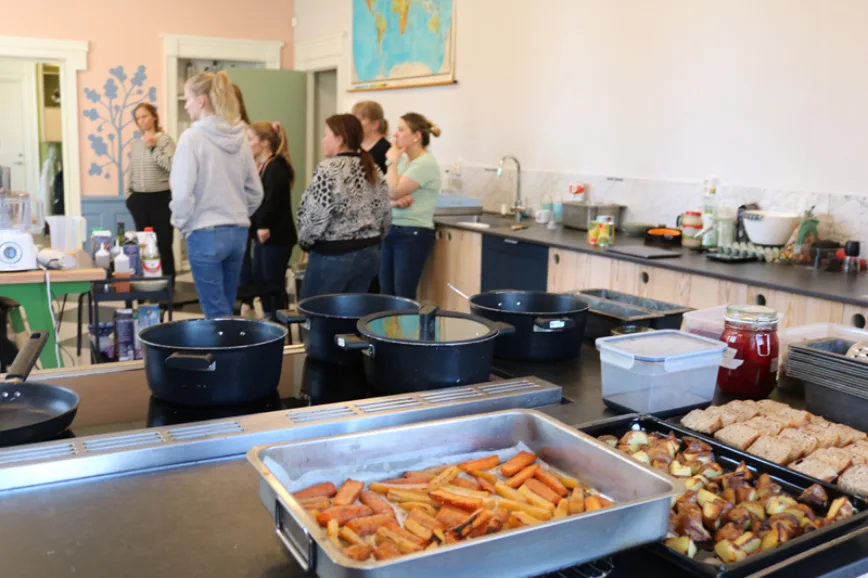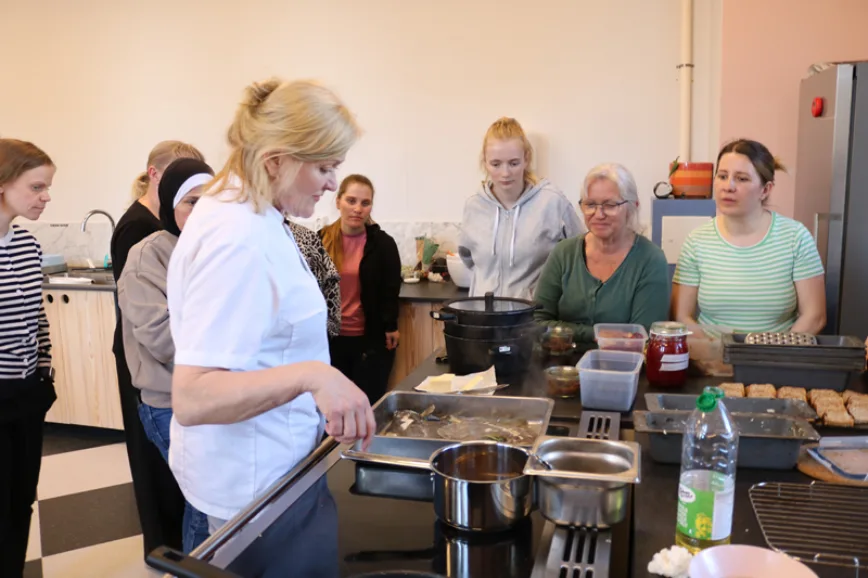READ MORE ABOUT FOOD4kids Recipe for Heidi's Bread
Heidi Bjerkan, one of Norway's most renowned chefs and founder of, among others, the Michelin-starred restaurant Credo and Credo Competence Center, has welcomed several kindergarten staff to cooking courses this spring.
Bjerkan has extensive experience in conveying sustainable food traditions and, with Credo, won the very first Nordic Sustainability Award issued by the Michelin Guide in 2019. The Competence Center works to spread knowledge and engagement about healthy and sustainable food and has entered into a collaboration with DMMH, Trondhjems Asylselskap, and NTNU on precisely this.
FOOD4kids
The international project FOOD4kids is funded by the Research Council of Norway. Its goal is to increase kindergartens' knowledge about food and how food affects our health and nature. The project will also investigate children's knowledge about sustainability and natural connections in Norway, Sweden, and Italy.
In April, all employees in Trondhjems Asylselskap kindergartens received training in cooking from star chef Bjerkan and fellow chefs Joakim Østlyng and Isak Seltveit.
The kindergarten staff received, among other things, an introduction to bread baking, how to make various types of spreads, and other dishes that can be served in kindergartens. In addition to a large dose of inspiration. Bjerkan emphasizes that one should never throw away bread, as dry bread crusts have many uses. In the long run, the recipes will be made available to kindergartens and families. But first, there will be offers of courses for both the children in the kindergarten and their guardians.

- If we knew how much work it takes to grow vegetables, we would never throw anything away, Heidi Bjerkan tells the staff at Dronning Mauds Minne kindergarten.
The kindergarten staff had a useful afternoon. Pedagogical leader Julie Søreng thinks it's nice to see how little time it takes to make food from scratch. Special educator Benedicte Slatlem appreciates getting recipes that are simple enough for children to participate in making the food.
- I believe that food is a central part of life, and being involved in this is at least as important as other activities we do in kindergarten, except for play, says Paal Christian Bjønnes, the general manager at Trondhjems Asylselskap. Therefore, it was easy to say yes to participating in the project.

Staff from Trondhjems Asylselskap kindergartens are attending a cooking course at Credo Competence Center, learning that it neither takes much time nor money to make healthy and sustainable food.
Credo's Motivation
For Bjerkan, it is important to give all children an equal starting point to master and make food and be able to make their own choices. She also believes that children should be more involved in cooking.
- Give children knives, they can help cut vegetables from a young age, she encourages.
- Parents don't let children participate enough. Children catch on to everything in a completely different way. They can influence their parents' choices.
The star chef is concerned about how we manage our resources and how Norway is becoming less self-sufficient.
- We need to do something to create a change in how we manage the land, and we must start with the children. People need knowledge; not many people cook from scratch anymore. My greatest fear is that we lose so much knowledge. We must preserve all the knowledge that exists.

Michelin chef Heidi Bjerkan and Credo Competence Center are partners with DMMH and NTNU in the FOOD4kids project.
Bjerkan also points out that food is important for leveling differences in social status.
- When you can't cook, you often buy simple ready-made meals that are ultra-processed. They are both expensive and low in nutrients.
Together with the rest of the staff, Bjerkan and Credo will soon leave Trondheim. They are establishing themselves at the National Library in Oslo and hope to have an even better foundation for promoting food culture in this way. This makes no difference to their participation in the project. Bjerkan gladly commutes back to Trondheim; she has several courses to conduct with kindergarten children and their guardians.
More about the project:
Literature data and interviews with staff and children in the kindergarten will be used to examine and compare the food served in kindergartens in Norway, Sweden, and Italy. Data on food items purchased over a year in at least 20 kindergartens in Norway will be used by the Department of Energy and Process Engineering (NTNU) to calculate the carbon emissions, water consumption, and land use associated with each product, including transport, packaging, etc.
The project will also develop and test educational tools and activities related to sustainability and health, which kindergartens will have free access to. Additionally, a free app will be developed, tailored to kindergartens, to assess the health and environmental impact of food items.
- The results from the project will be used both in education and practice and will contribute to a better understanding of food and sustainability and how to introduce this topic to kindergarten children, says project leader Claudia Melis from the Department of Nature, Environment, and Health at DMMH. Together with colleagues Anna Billing and Per-Arvid Wold from the same department, and Kathrine Bjørgen from the Department of Physical Activity and Health, she initiated the project.
- It's very exciting to participate in such an interesting project together with Credo Competence Center, colleagues from other universities, and many skilled kindergarten staff to find out how we can increase food knowledge, says Melis.
Project partners in FOOD4kids:
DMMH
NTNU
Högskolan i Dalarna
University Aldo Moro in Italy
Trondhjems Asylselskap
Credo Competence Center
